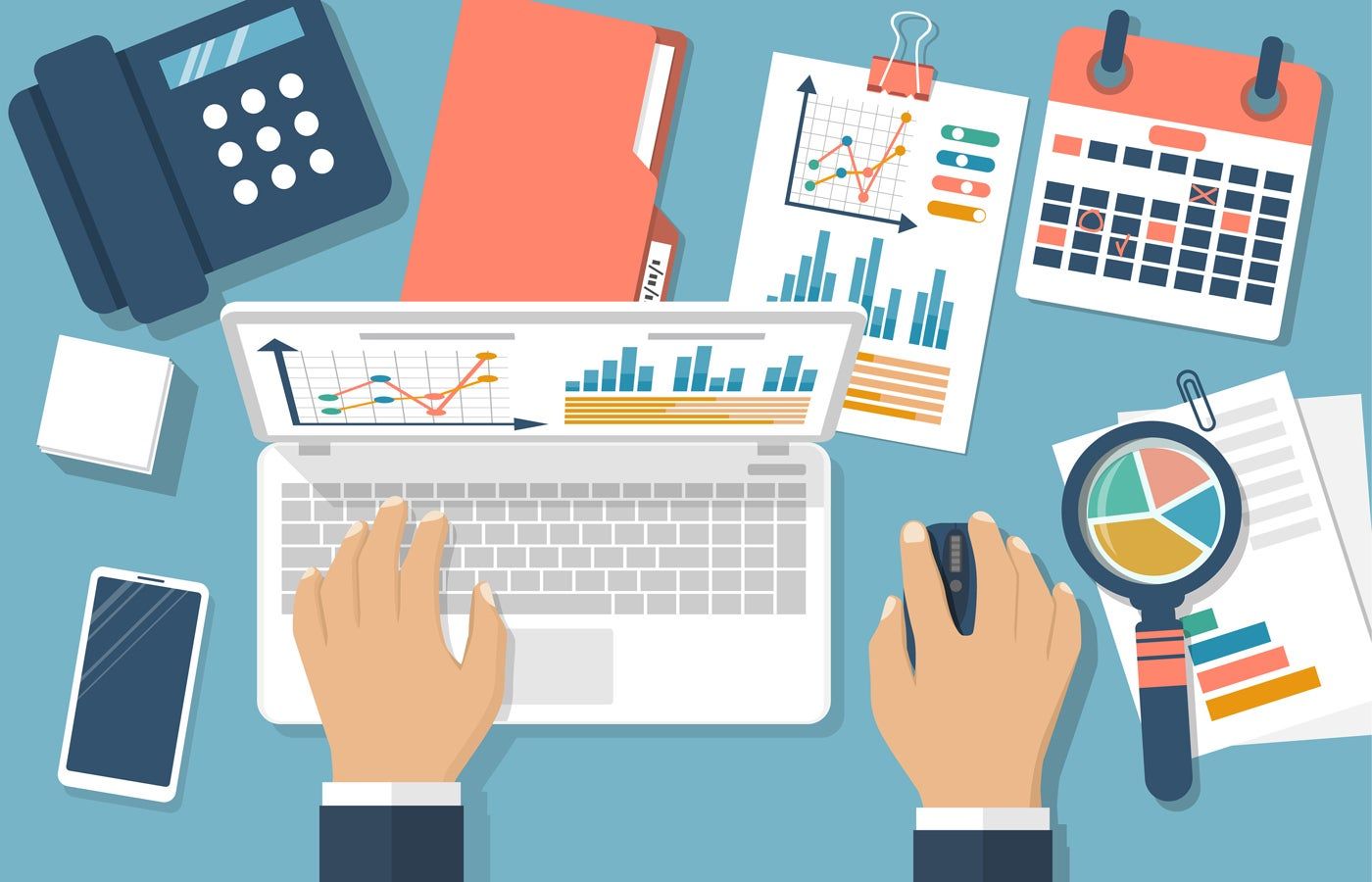When running your business, learning how to keep your personal and business finances separate should be the first thing you focus on. Learning how to separate personal and business finances is critical to simplifying your tax preparation, building business credit, and accurately and effectively evaluating your business's performance. Getting ahead on this front will save your business time and money in the future.
If you are a new business owner or a current owner who realizes that you should have been keeping separate records, you should follow the detailed guide I have prepared below to make sure you know what it takes to maintain a clear boundary between your business and personal finances.
Step 1: Obtain an Employer Identification Number (EIN)
I would recommend that you first obtain an EIN from the IRS. An EIN is a unique nine-digit identifier that the government uses to identify businesses for tax and federal filing purposes. Having one helps establish your business as a completely separate legal entity. Obtaining an EIN is a free and relatively easy process, and it saves you a lot of time down the line when it comes to making sure your business is legally separate for important future processes, such as tax filings and business banking.
Why do you need an EIN?
An EIN distinguishes your business from yourself and ultimately establishes a separate legal entity for your business, which will be crucial when dealing with common business processes:
- Legal separation: An EIN helps organize your business as if it were legally separate from you. This helps prevent your personal assets from becoming mixed in with your business obligations.
- Tax purposes: With an EIN in hand, your business can file taxes independently of your personal tax returns when it comes time to pay taxes.
- Business banking: Banks now require an EIN to allow you to open a business bank account. Having one allows you to maintain a separate bank account for your business.
- Employee Management: An EIN is required to file employee taxes and handle payroll. Having an EIN also helps establish your business as a legitimate employer.
- Credit for business creation: An EIN is required to establish credit in your business name, separate from your personal credit file.
Step 2: Register your business
The next step I recommend is to formally register your business. This can take the form of a sole proprietorship, an LLC, an S corporation (S-corp), or a C corporation (C-corp). Registering your business is an important step on the path to protecting your personal assets in the event that legal action is taken against your business. Keep in mind that this protection can disappear if you commingle your personal and business funds. That's why it's a good idea to consider separating your personal and business funds to avoid these issues.
Step 3: Open your business bank account
After registering your business, I recommend that you open a business bank account for your business. A business bank account allows you to keep a clear record of your company's income and expenses and allows you to complete the necessary paperwork during tax season. Having a business checking account for your business also allows you to keep your accounting and financial management under control.
When you open a business bank account, make sure that all income your business earns is deposited into this account and that all business expenses are paid from that same account. Having this clear separation makes it easier to document and manage your business finances. For help with managing your business bank accounts, check out the best bank reconciliation software.
Step 4: Get a DUNS number
Next, I recommend that you obtain a DUNS number from Dun & Bradstreet so that you can ensure that you formally establish your company's credit profile.
Importance of having a DUNS number
Creditors use a DUNS number to determine your business's creditworthiness. It provides insight into the health of your business and its overall credit profile. Your business's credit profile is crucial in determining whether you will be able to obtain loans and lines of credit in the future. Establishing a strong business credit history is key to ensuring your business continues to grow and achieve financial stability.
Step 5: Get a credit card in your company's name
Business credit cards help build a credit history for your business that is separate from your personal credit. By using business credit cards for business expenses, you not only build business credit, but you also keep your personal and business transactions separate.
This separation is important for accurate financial reporting and for establishing a strong credit history for your business, which can help you obtain better financing terms and diversify your loan options in the future.
Step 6: Set up utility accounts in your business name
Another way to improve your business credit is to open utility accounts in your business's name. Utility accounts include your business's subscriptions and other regular business-related functions, such as phone bills, Internet service, and software licenses.
Mark these services for payment under your business name and make sure the bank account you set up for your business keeps track of these expenses for accounting software purposes.
Step 7: Track your business expenses and keep receipts
One thing I would like to highlight is the importance of expense tracking software in separating personal and business finances. I think it is critical for your business to have an expense tracking software or system that helps you track expenses and billing to get an accurate picture of the cash flow that your business actually involves.
Benefits of expense tracking
Expense tracking ensures that your business keeps clear and streamlined records for tax purposes. There is nothing worse than having to search for all of your expenses and invoices and finding nothing when it comes time to pay taxes. This can impact and even delay your tax preparation and end up costing you money. Don't put yourself in this situation.
The best way to avoid finding yourself in this situation is to make sure your employees are using business expense tracking software and are trained on it. Keeping detailed receipts will also help you maintain compliance and prepare for future audits.
Step 8: Get on the payroll
Paying yourself a salary from your company account is a key step in maintaining a clear separation between personal income and business income. This practice simplifies accounting and ensures that personal finances remain separate.
Withdrawing your salary from a business account can help you create a predictable income stream and avoid the hassles that come with mixing your business and personal funds. For more information related to setting up a business account, please read on.
Step 9: Monitor the use of personal items in your company
Finally, I recommend that you keep detailed records of the business uses of your personal assets for accurate tax deduction possibilities. This includes keeping track of assets such as home offices or vehicles used in the management and maintenance of your business.
Commercial Use Documentation
Making sure you keep accurate documentation of assets used helps during tax season. Keep detailed records of home office expenses and use mileage tracking apps for business-related vehicle use. These records can help reduce your business tax bill when tax season rolls around and are a great way to make sure you have documentation on hand to comply with any tax law changes or future business audits.
Why it is important to separate personal and business finances
Keeping personal and business finances separate is critical to achieving financial clarity, accurate tax filing, and legal protection. This helps you maintain a clear picture of your company's true financial health.
Clear financial boundaries also simplify accounting, prevent commingling of funds, and reduce the risk of legal issues related to inaccurate financial reporting. All of this combines to create fewer headaches for you as you continue to grow and develop your business.
Recommended business bank accounts to separate business and personal finances
Choosing the right business bank account is critical to keeping your business finances separate. Here are some of the options I would choose:
Frequently Asked Questions (FAQ)
Is it important to separate personal and business finances?
Yes, it is very important to separate personal finances from business finances. If business finances are kept in a legally separate account, certain financial and tax protections are provided for personal finances. However, these protections can be lost if personal finances are not properly separated from business finances.
Can I use QuickBooks for business and personal finances?
Yes, I would actually recommend using QuickBooks for both your personal and business finances. Just make sure you don't mix the two accounts. QuickBooks can be helpful for budgeting and invoice management, and it also allows you to keep separate files since QuickBooks can keep track of the paperwork for you.












